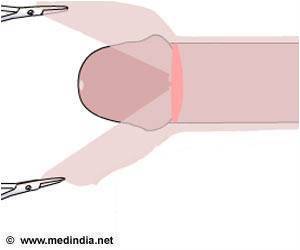A new study conducted by University of Illinois researchers finds men do not engage in riskier behaviors after they are circumcised.

The new study, published online July 21 in the journal AIDS and Behavior, is the first population-level longitudinal assessment of risk compensation associated with adult male circumcision.
The study was conducted during the implementation of the national, voluntary medical circumcision program in the east African country of Kenya. From 2008 to 2010, 3,186 uncircumcised men from Nyanza Province participated in the study. Half were circumcised shortly after their baseline assessment, while half chose to remain uncircumcised.
The men, between 18 and 35 years old, were assessed every six months for two years. They were asked about their perceived risk of acquiring HIV, sexual behaviors, and condom use. All participants, whether circumcised or uncircumcised, were encouraged to attend HIV testing and counseling services at clinics, where they were exposed to HIV educational videos playing in the waiting areas. Participants did not receive direct risk-reduction counseling during visits.
Sexual activity increased equally in the circumcised and uncircumcised men, particularly among the youngest, those 18-24 years old. But despite an increase in sexual activity, all other sexual risk behaviors declined in both study groups, and condom use increased. Risky behaviors, which included engaging in sex in exchange for money or gifts, sex with a casual partner, or having multiple sex partners, declined considerably among both groups.
Men who were circumcised often perceived they had lessened their risk of acquiring HIV. Thirty percent considered themselves high- risk before circumcision, while just 14 percent considered themselves so after. Among those who chose not to be circumcised, 24 percent considered themselves high-risk at the beginning of the study and 21 percent still did at the end. However, the differences in perception of risk did not translate into differences in risky behavior over the two years of the study.
"It was very important to do a real life, population-level study to look at this question," she said. "If men engaged in risky behaviors after circumcision, it could negate the protective effects."
Source-Eurekalert
 MEDINDIA
MEDINDIA




 Email
Email





